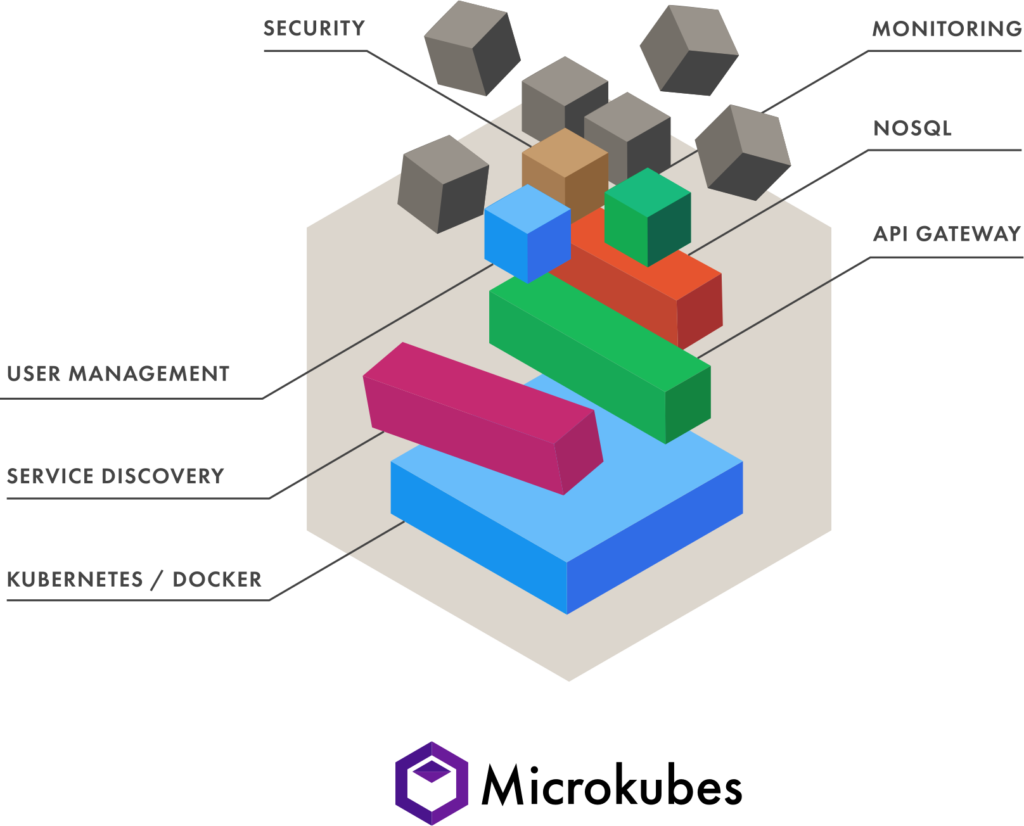
Scalable, Ready To Use Microservice Framework
Microkubes is an open-source framework for building data management platforms by using microservices. It’s simple, scalable, easy to use and works on any cloud. Microkubes is designed to enhance happiness among developers. Be a step ahead of the game and save months of work using our ready-to-use framework with user management (OAUTH2; JWT; SAML) already integrated.
Its integrated development environment allows teams to focus on solving business issues, rather than wiring services together. Microkubes enables you to create a project with a single command.

Service Discovery
One of the primary challenges with microservice architectures is allowing services to discover and interact with each other. Microkubes facilitates interaction by detecting where services reside and by providing fault and latency tolerance.

Monitoring
The framework also includes monitoring and alerting. This enables developers to identify where problems occur and the level of performance, without putting instrumentation into the microservice itself.

High scalability and availability
Microkubes is driven by efficiency. You can scale each microservice with the entire system, without facing any performance issues. As your services scale and the number of requests grow, it has the capacity to intelligently handle increased traffic.

Integrated user management
Our integrated user management ensures the integrity of data by using OAuth2, JWT and SAML for user authentication and authorization. Furthermore, it increases security by eliminating the risk of password theft or reuse.

Security
Microkubes separates security from the microservice implementation, so service developers are not responsible for security implementation. The framework also provides the ability to manage public/private keys, certificates, authentication and authorization through a role-based access model.

Polyglot programming environment
Microkubes is language-agnostic, which means microservices can be built in any programming language. By using multi-stage Docker builds, we make sure that the containers are lightweight and dynamic. The platform has multi-container capabilities where a single instance can host native code, Go, Python, Java, etc.